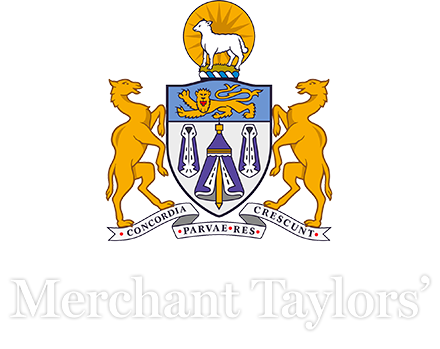Charlotte O’Brien (2007 Leaver) – The “Floating” Doctor
Floating Doctors

To conclude my final year at medical college I had the opportunity to study abroad for two months (known as an “elective”). I chose to go to Panama, Central America, working for Floating Doctors. Floating Doctors is a non-profit organization, based in Bocas Del Toro, a small island just off Panama, founded in 2010 by Dr. Benjamin La Brot, a native Southern Californian in response to the enormous demand for healthcare around the world he had seen through his travels. Floating Doctors now acts as the primary healthcare provider to just over 25 key areas over a 500 square mile radius, delivering medical care to remote towns in the Archipelago de Bocas Del Toro region.
Floating Doctors follows a well-organised schedule in terms of how and where it delivers healthcare. Operating on a two week schedule, the first week is divided into alternating days of visiting a nursing home called The Aceilo, and travelling to smaller islands by boat setting up what is known as a single day clinics. The second week involves longer multi day clinics, servicing distant extremely remote areas, spending several days in one community.

I had read of this schedule beforehand but didn’t appreciate the level of organization required to produce the smooth running of these days. Setting up a single day clinic involved transporting all the medical equipment from the mainland via boat to these isolated communities. This included large boxes containing the “mobile pharmacy” with a variety of drugs, from simple pain relief to anti-hypertensive medication. Once we arrived at an island we had to transport all the medical equipment and drug supplies to the “Rancho”, a central community point where we would run the clinic that day. The clinic consisted of a general admin table where patients would register, and if they had been seen before their medical records from previous admissions were looked at. Then there were 3-4 intake stations, where the patients’ vitals (blood pressure, temperature and heart rate) were recorded and a brief history of the problem taken. The doctors, myself included, then manned Provider Stations, where we would compile the information from the previous stations as well as ask further questions and carry out more specific examinations or investigations, to lead to a diagnosis and treatment plan.
Multi day clinics followed the same pattern but as the communities were located much further away from the mainland so rather than returning after one day we would run the clinic over three days and stay within the community.
The main thing I really enjoyed about the multi day clinic was how involved we were with the community. The communities were often fairly small and centred around the main Rancho. Sleeping arrangements were in the form of a hammock tied up around the clinic or between two strong looking trees! Our meals were provided and cooked by one of the families in the community who was often the contact for Floating Doctors. When I say meals I mean rice and beans, which we ate for lunch and dinner for four days!
The main benefit of running the multi day clinic, apart from the fact we were providing healthcare to such remote areas, was that we were able to run a follow up clinic on the last day. Therefore if we had seen patients on the Wednesday or Thursday and felt they would benefit from seeing the doctor one more time before we left, then we were able to ask the patient to come back to the clinic on the Friday. Most of the time these patients were children who either had a rash or viral infection, and after starting them on medication we were able to see if they were improving.
The volume of patients at these multi day clinics was overwhelming. When we arrived to set up the clinic families were already waiting asking us what time we were open. Often when we woke up there was already a huge queue of people waiting to be seen before we had even started.
Medical equipment to record basic vitals (e.g. blood pressure cuffs) was available but diagnostic tools were limited to urine dip, blood sugar monitoring, pregnancy testing, hematocrit level and one of the most useful tools, a portable ultrasound scan. Situations did arise where a simple full blood count including full blood count and liver function tests etc. was vital, but was however unavailable. This is something we don’t think twice about requesting back in the hospitals in the UK, and it really made me appreciate how useful this testing can be.
Once a community had been seen whether in the form of a single day or multi day clinic they would then be visited by the floating doctors’ team in three months time. I often found this difficult to comprehend that there was no real way of checking to see if the patients were ok. You had to be very sure in your diagnosis in the first place and you were not sending a baby away who you suspected had a fever but actually had meningitis.
Children ranging from a few months old to 10 years were the most common age group that presented in the clinics. I particularly enjoyed this considering paediatrics is an interest of mine. Mothers who were not much older than myself would often bring 3-6 of their children all to be seen, and often the clinics felt like a nursery. Worms, back pain secondary to dehydration and manual labour were also common, not unexpectedly given the lifestyle of many of the families.
My time with floating doctors was unforgettable, enabling me to work with an inspiring team and have lots of fun along the way. It was interesting to work alongside lots of other medical professions from all different levels as well as different countries, and compare the way we have been taught. Floating doctor has allowed me to gain valuable insight into tropical medicine and the options of studying medicine in a different country.

Charlotte O’Brien (2007 Leaver)
N.B. Merchant Taylors’ Old Girls Association was pleased to assist Charlotte with funding towards her trip, which helped pay for her flight.
Latest News

- A Legacy in Song: Merchant Taylors’ Hosts Spectacular Gala
- Welcome Mr Philip Dearden: New Head of Merchant Taylors’ Schools
- Merchant Taylors’ RAF Cadets Achieve Second Place in National Finals
- Merchant Taylors’ Celebrates Cadet Achievements at Inspection Day
- Year 6 Pupils Shine in Romeo and Juliet Performance
Upcoming Events
- Easter Holiday Club 2025 on April 22, 2025 8:00 am
- Marvellous Merchants’ Superheroes on May 21, 2025 4:00 pm
Privacy Overview
| Cookie | Duration | Description |
|---|---|---|
| cookielawinfo-checkbox-analytics | 11 months | This cookie is set by GDPR Cookie Consent plugin. The cookie is used to store the user consent for the cookies in the category "Analytics". |
| cookielawinfo-checkbox-functional | 11 months | The cookie is set by GDPR cookie consent to record the user consent for the cookies in the category "Functional". |
| cookielawinfo-checkbox-necessary | 11 months | This cookie is set by GDPR Cookie Consent plugin. The cookies is used to store the user consent for the cookies in the category "Necessary". |
| cookielawinfo-checkbox-others | 11 months | This cookie is set by GDPR Cookie Consent plugin. The cookie is used to store the user consent for the cookies in the category "Other. |
| cookielawinfo-checkbox-performance | 11 months | This cookie is set by GDPR Cookie Consent plugin. The cookie is used to store the user consent for the cookies in the category "Performance". |
| viewed_cookie_policy | 11 months | The cookie is set by the GDPR Cookie Consent plugin and is used to store whether or not user has consented to the use of cookies. It does not store any personal data. |

